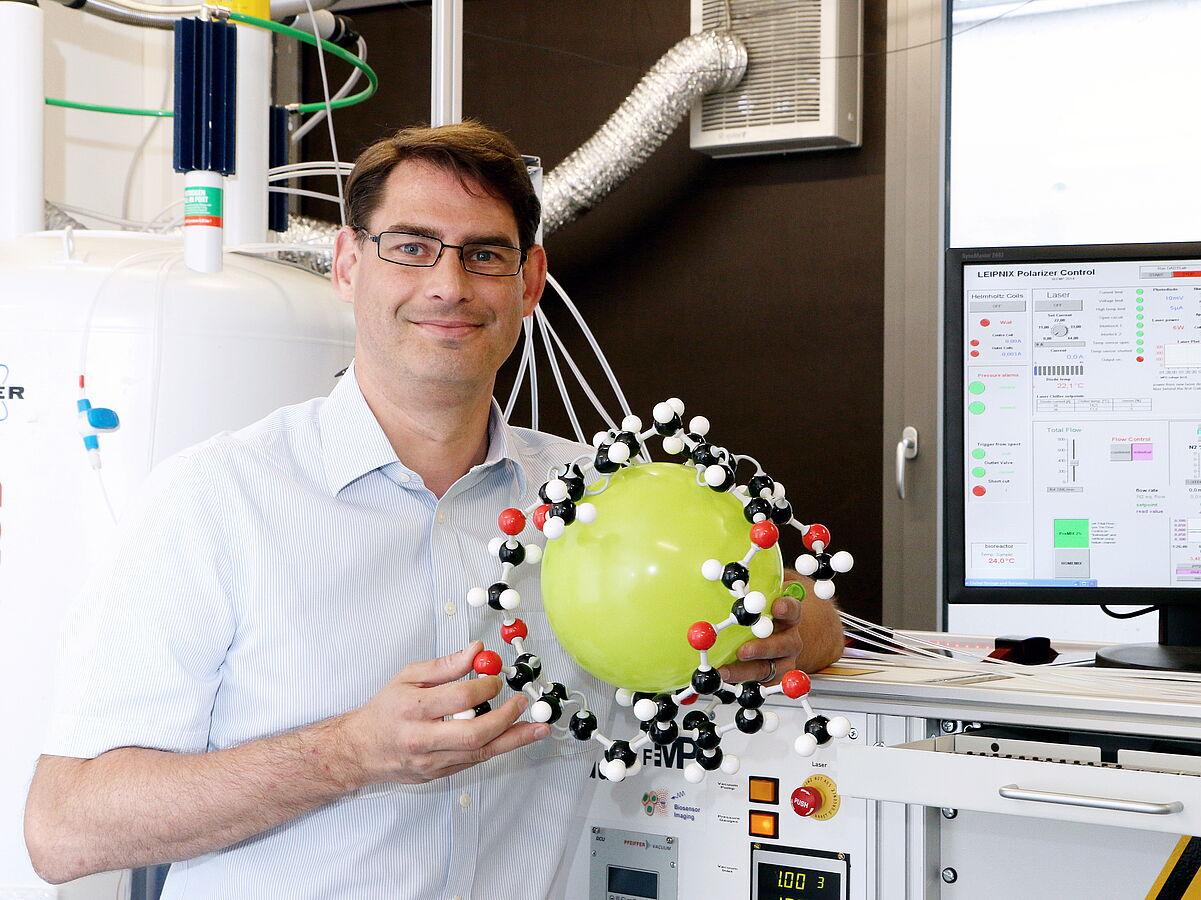The physicist Leif Schröder has been granted funding totalling 1.525 million euros in the Koselleck programme of the DFG for highly innovative research into the detection of tumours.
The Leibniz-Institut für Molekulare Pharmakologie (FMP) and the Leibniz-Gemeinschaft have their first Koselleck grantee: Leif Schröder is conducting research on a novel, non-invasive diagnostic imaging procedure. The well-known magnetic resonance imaging (MRI) plays a key role here, although it is normally limited to the detection of relatively highly concentrated molecules. That the main challenge of this diagnostic method, which is otherwise sparing for the patient.
The method of spin hyperpolarisation is now to be applied to harness the majority of the previously largely unused potential (> 99.9 percent), in order to visualise weakly concentrated molecules as well. Challenges remain with respect to the rapid attenuation of the hyperpolarisation and detection in tissue. Leif Schröder and his group use biosensors to trace desired target molecules and then combine them with the hyperpolarised atoms on living cells. The additional combination with the inert gas xenon makes the biosensors into highly sensitive detectives that identify target molecules at million-fold reduced acquisition times.
For the Koselleck research project, the group is now interested in biosensor detection in living tissue, an experiment that hasnot yet been achieved anywhere in the world. "But that will soon change. In our interdisciplinary Koselleck project, we will achieve the development of novel nanocarriers that will be able to take up a large number of hyperpolarised atoms in the tissue," says Leif Schröder. The objective of the research project is to visualise sophisticated biomarkers, such as cell surface glycans. These glucose compounds contain valuable diagnostic information about the malignancy of tumours.
Leif Schröder convinced the Deutsche Forschungsgemeinschaft (DFG) with his project application, which it acknowledged as an "exceptionally innovative project that is high-risk in a positive sense." The success of this project would represent a "quantum leap" in medical diagnostics, as is further stated in the appraisal. Schröders project is regarded by the DFG as a "prime example for the Koselleck programme," which is designed to give researchers appropriate flexibility and time to attempt major breakthroughs.
The research group will receive 1.525 million euros for a period of five years, which will be supplemented by a further commitment of the FMP in this field.
Up to 10 Koselleck projects are awarded every year, there are 71 in total throughout Germany, with four currently in Berlin.
Contact
| Leibniz-Institut für Molekulare Pharmakologie (FMP) Dr. Leif Schröder Phone: +49 30 94793-121 lschroederfmp-berlin.de Public Relations Silke Oßwald Phone: +49 (0)30 94793-104 osswaldfmp-berlin.de |


